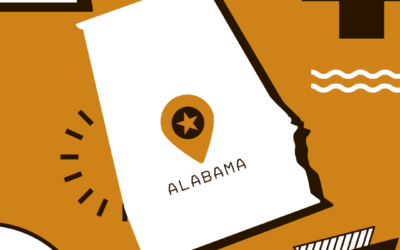Do you need to collect and remit sales tax in Pennsylvania?
Sales and use tax in Pennsylvania applies to various transactions involving tangible personal property, including digital products and some services. In most cases, retailers must collect and remit sales tax.
However, there are some important exemptions to keep in mind:
- Non-prepared foods, like groceries
- Candy
- Gum
- Most clothing
- Textbooks
- Computer services
- Prescription and OTC drugs
- Sales for resale (such as through a wholesaler)
In addition to the general sales tax, Pennsylvania also applies a hotel occupancy tax. This tax is charged to temporary room rentals—including rentals through platforms like Airbnb—at the same rate as sales tax.
For remote retailers who do not have a physical presence in Pennsylvania, (like a physical store), sales tax requirements are determined by gross annual sales to the state. If these sales exceed $100,000, then they need to register for a sales tax license and collect and remit.
Do you have sales tax nexus in Pennsylvania?
One of the most critical components of sales tax in the modern age is nexus. In Pennsylvania, there are two types of sales tax nexus businesses need to keep in mind: physical nexus and economic nexus.
Physical sales tax nexus in Pennsylvania
Physical sales tax nexus means having a physical presence in the state that would require a business to collect and remit sales tax. Examples of physical nexus include maintaining offices, distribution houses, warehouses, or employing agents who work in the state. Additionally, having goods stocked in the state or soliciting orders through salesmen or representatives could also qualify as physical sales tax nexus.
If a business has physical sales tax nexus in Pennsylvania, they will be required to collect and remit sales tax on taxable sales, regardless of sales volume.
Economic sales tax nexus in Pennsylvania
On the other hand, economic sales tax nexus is related to economic activity. This type of nexus applies to remote retailers who don’t have any physical presence in Pennsylvania but who still meet certain sales thresholds. This threshold is set to indicate that a business, regardless of location, has enough economic influence to be comparable to an in-state retailer.
Each state has its own sales threshold for economic nexus. In Pennsylvania, the threshold is meeting or exceeding $100,000 in annual gross sales to the state. Remote retailers need to calculate their sales every year, including all taxable and nontaxable sales, to determine if they meet this threshold. However, sales through a marketplace facilitator registered with Pennsylvania are not included in this calculation.
Are marketplace facilitators required to collect and remit sales tax in Pennsylvania?
Just like other remote retailers, marketplace facilitators must meet the economic threshold of $100,000 in annual gross sales to Pennsylvania to be held liable for sales tax collection and remittance. This calculation combines all Pennsylvania sales across all sellers. If a facilitator does meet this threshold, they will be required to register with the Pennsylvania Department of Revenue to handle sales tax on behalf of the sellers using their platforms.
If you sell through a marketplace facilitator, the good news is that you don’t have sales tax responsibility for those sales. However, it’s important to ensure that the marketplace facilitator you’re using is registered with the state to collect sales tax on your behalf.
What platforms are marketplace facilitators?
What is a marketplace facilitator?
A marketplace facilitator, sometimes referred to as a Multivendor Marketplace Platform (MMP), is an online platform that allows customers to purchase goods or services from various vendors in one convenient location. These platforms can benefit businesses by increasing product visibility and attracting a larger customer base. Additionally, marketplace facilitators often have the legal responsibility to collect and remit sales tax on behalf of sellers, which can help ease the sales tax burden for businesses.
Filing Pennsylvania Sales Tax
If your business has nexus in Pennsylvania, it is necessary to register for and obtain a sales tax license. Pennsylvania offers two methods for registering and obtaining a license, which are outlined in the table below.
| New Businesses | Add tax accounts to existing businesses |
| Access the myPATH homepage | Log in to myPATH |
| Select the Pennsylvania Online Business Tax Registration link from the Registration panel | Under the More tab, select Register New Business Tax Accounts from the Accounts panel |
| Select Business Tax Registration | Select Business Tax Registration |
| Provide the required information | Provide the required information |
| You should receive your registrations details and account number via email. This will also be sent in the mail. | You should receive your registrations details and account number via email. This will also be sent in the mail. |
As part of the registration process, Pennsylvania will assign you a filing frequency which will let you know how often you need to file. New businesses are initially assigned a quarterly filing frequency, which we will dive into more in the next section.
Once you’ve collected sales tax for a quarter, it’s time to file. We’ve detailed all the information and filing options available in the table below.
| Filing Option | Description |
| TeleFile | To TeleFile, call 1-800-748-8299. Provide your Sales Tax Account ID Number, your FEIN or SSN, or your Pennsylvania Revenue ID. Provide sales data, such as gross and taxable sales over the phone as well. (To be decommissioned after December 31,2023.) |
| Third-Party Software | File through approved software vendors such as Trustfile, Intuit Quickbooks, Vertex, TaxJar, and AviorData. |
| myPATH | Filing and paying online is strongly encouraged as it ensures less chance of error and delay. Log in to myPATH, select the Sales and Use Tax account panel, and select the File Now link for the current period. |
To submit payments for sales tax returns, you can use ACH Debit or a Credit Card via myPATH, submit payment through TeleFile, or mail a paper check.
Let us file for you!
If you’re looking for help with a myriad of sales tax obligations, that’s why we’re here! We are a one-stop-shop for comprehensive sales tax services! Our range of services includes nexus determination, business registration, compliance reviews, audit assistance, and—of course—filing sales and use tax returns. If you don’t see what you need, just let us know and we’ll create a customized solution just for you. Visit our services page to learn more!
When are sales tax returns due in Pennsylvania?
A crucial factor in managing Pennsylvania sales tax compliance is knowing when your returns are due, how often they are due, and what you need to report in each return. In Pennsylvania, all sales tax returns are due on or before the 20th of the month. However, that doesn’t necessarily mean you’ll be filing every month. If that sounds contraditory or downright confusing, this guide is for you.
Understanding Filing Frequencies
There are several different reporting periods for Pennsylvania taxpayers. The list includes monthly, quarterly, semi-annual, and even accelerated prepayments. These reporting periods—or filing frequencies—refer to how often a taxpayer is required to submit sales tax returns and payments.
Like most states, Pennsylvania assigns filing frequencies based on business acitivity. Higher tax liabilities equal more frequent tax reporting, whereas smaller or lower-volume businesses file less often. Uniquely, Pennsylvania assigns an intial quarterly filing frequency to all newly registered entities, which is later reassessed depending upon the amount of tax reported.
Why Different Frequencies Exist
Diverse filing frequencies exist to balance the administrative burden on both businesses and tax authorities. Smaller businesses with lower sales volumes typically file less frequently, reducing compliance efforts which can lead to decreased costs and paperwork. Conversely, businesses with higher sales volumes often handle larger amounts of tax and need to file more frequently. This ensures a continued flow of revenue to the state while reducing the risk of significant tax liabilities accumulating.
Pennsylvania Filing Frequencies
Accelerated Sales Tax (AST) Prepayments
Businesses with high tax liabilities need to make early payments—known as accelerated prepayments—for their sales, use, and hotel occupancy taxes. Pennsylvania taxpayers that are assigned accelerated prepayments must submit them monthly in addition to filing a monthly return. There are two levels of AST: Level 1 and Level 2.
AST Level 1
- Who? This level is for taxpayers that had a previous third-quarter (July-September) tax liability between $25,000 and $100,000.
- What is the requirement? Businesses on this AST level have two options for calculating their prepayment: One, they can pay 50% of what they owed for the same month of the previous year; Two, they can choose to pay at least 50% of their actual tax liability for the current month.
- When do I pay? AST Level 1 payments are due by the 20th of every month. When your return comes due the following month, you will subtract the prepayment you made from your full tax liability.
AST Level 2
- Who? This level applies to taxpayers that had a previous third-quarter (July-September) tax liability of $100,000 or more.
- What is the requirement? These businesses must prepay 50% of their tax liability from the same month of the previous year. Unlike Level 1, the option to calculate their prepayment based on the current month’s liabilities is not an option.
- When do I pay? AST Level 2 payments are due by the 20th of every month. When reporting tax on your returns, you will subtract the prepayment you made from your full tax liability for the month.
Monthly
If your business reported $600 or more in sales tax during the third quarter, (July-September), you’ll be required to file and pay a sales tax return by the 20th of every month. This return will cover gross sales and tax collected in the previous month. For example, sales tax collected in March is reported and paid by April 20th.
As stated above, some businesses are required to pay accelerated prepayments in addition to filing a monthly return. Remember that if you have made a prepayment toward your return, you will subtract that amount from the total tax collected that month and pay the remainder when filing.
Quarterly
New businesses in Pennsylvania are initially assigned a quarterly filing frequency. Once the state reassesses filing frequencies, your business will maintain a quarterly frequency if it collected less than $600 but more than $75 in sales tax during the third quarter.
Quarterly filers submit sales tax returns every three months, coinciding with the fiscal quarters:
- Q1 (January-March) due April 20th.
- Q2 (April-June) due July 20th.
- Q3 (July-September) due October 20th.
- Q4 (October-December) due January 20th.
Semi-Annual
Semi-annual filing is assigned to businesses that collected less than $75 in the third quarter. Semi-annual filers submit sales tax returns twice a year:
- S1 (January-June) due July 20th.
- S2 (July-December) due January 20th.
Save the graphic below and never miss another Pennsylvania sales tax due date!

Remember that each November. Pennsylvania conducts a filing frequency assessment for all sales tax accounts. If the state changes your frequency, you will receive a notification to adjust your filing accordingly. Stay proactive and keep an eye out for any updates from Pennsylvania on your myPATH account or in the mail!




